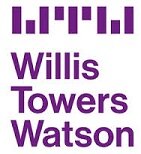How do you assess ability to do physical work?
Can they do the job? Is there a job match? What reasonable adjustments are required? Do they need a graduated return- to-work plan of hours?
Physical Work Assessment – Employers often want to know the answer to these questions. How do you assess ability to do physical work?
It may be that an employee is struggling to do the work tasks due to various reasons, they have:
- Had an injury, recently.
- Been diagnosed with a new medical condition.
- Age-related aches and pains.
- Been awaiting treatment, such as surgery.
- Been on sick leave, so have not done the tasks for some time.
Employers may have correspondence from the individual’s GP. A ‘Fit Note’ may have been completed by the GP indicating the individual can ‘return to work’. It may indicate that ‘reasonable adjustments’ under the Equality Act 2010 are required.
Specialist medical letters may be available and appointments may be ongoing for treatment and rehabilitation. Healthcare may be provided by NHS services or privately.
Generally the GP cannot provide an opinion on what the individual worker can or cannot do, as this requires specialist assessment by a workplace health specialist service, often known under the ‘umbrella term’ of an Occupational Health Service.
Occupational Health Services may be available within your organisation or you may contract in these services. The services can vary greatly. Some may have a team of health professionals available to advise and provide a service on many different matters. Such as flu vaccinations, pre-employment medicals, healthy lifestyle advice etc. Through to complex case management advice and assessments. Assessing physical ability to perform tasks, mental health assessments, medical retirement etc.
Some Occupational Health teams consist of OH specialist nurses and doctors, known as Occupational Health Physicians. Only a doctor can diagnose a health condition. Often the GP or NHS /private specialist service doctors will have done this. The team can have physiotherapists, psychologists, occupational hygienists and occupational therapists in the team. Generally the team have a wide skill mix, due to their past work roles, so they can compliment each others range of expertise.
Occupational Health Services are also delivered by smaller uni-professional teams. Health care professionals can advise on work and health matters, where it fall within their expertise. Occupational Therapists are experts in assessing physical and mental health, function and ability. They find practical solutions so individual’s can be independent in activities.
A Functional Capacity Evaluation (FCE) is a specialist assessment, specifically designed to assess ability to perform physical work. Like lots of walking, standing, reaching, lifting and kneeling tasks for low level work tasks.
This physical work assessment is different from a general ‘functional assessment’ that may be performed by a Health Care professional (registered with the HCPC), looking at an individual’s ability to perform personal care and domestic daily activities. It is a researched (standardised) method of assessment used by Health Care Professionals. Specialist training and testing equipment is required.
A questionnaire about the job demands will have been completed by the Line Manager.
Before the assessment, 1 hour is allocated to assess the work task environment and processes. A Job Demands Analysis. This enables the assessor to have a clear understanding of the job tasks. Also to understand if there are any ergonomic and reasonable adjustments that would be possible, if required.
A meeting room at the workplace is required to conduct the assessment.
The assessment process then begins with a review of the individual’s medical history, current symptoms and treatments. Also discussion about non-work activities. The individual will then estimate their ability to perform the work tasks and postures.
Individuals will then perform practical tests, simulating the work tasks, to gather accurate detail of their current level of ability.
They will only perform tasks which are safe for them to do. If an individual has a knee issue, so they are unable to flex/bend their knees to squat, they will not be asked to perform any lifting from the floor. It would be unsafe for them to do so and could lead to further injury.
The assessment will establish the physical abilities of the individual and their difficulties. It collects information which is relevant to the tasks of the job.
The assessment will help to decide:
- Is there a job match of the individual’s ability to perform some or all of the work tasks.
- Can they perform the role with reasonable adjustments, such as ergonomic considerations, eg use a stool instead if standing is an issue. More breaks. Remove some tasks from their role temporarily or permanently.
- Do they need reduced hours or a graduated plan of hours to return them to the role. What would be the specific advice for this plan, to increase steadily back to the full hours and full tasks.
- If they are unable to perform any substantial part of the role currently. Do they need further rehabilitiation and then re-consider the role in the future. Or are there alternative roles available, for the short term, or permanently.
If the individual does not have a current job role, a Functional Capacity Evaluation can be performed at their home address. It will establish their current level of ability and difficulty to perform all types of physical work postures and tasks.
See Functional Capacity Evaluation providing more detail about this assessment service.
This information can then be used to assist in a Career Redirection Assessment and ongoing job search sessions.
See our Case Studies:
Functional Capacity Evaluation of a Carer – Case Study
Functional Capacity Evaluation of a Caretaker – Case Study
Physical Job Analysis of a mechanic – Case Study
See our blog articles related to this topic:
Occupational Health Assessments at work
Contact Us for further advice and a quotation.
See our Useful Links page which includes diagnosis specific advice from organisations which can help.




